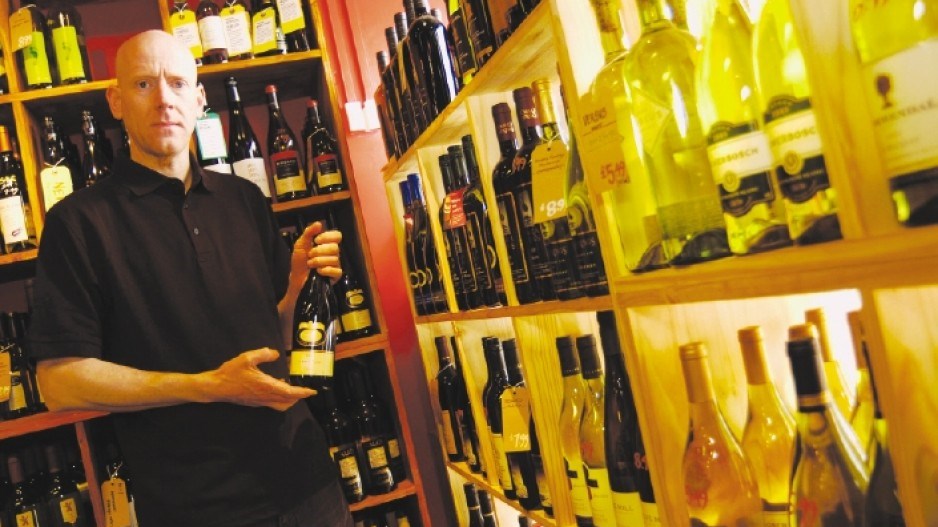The push to privatize B.C.'s liquor warehousing and distribution is tainted, charged Shane Simpson, the NDP's Liquor Distribution Branch (LDB) critic, following publication in Business in Vancouver of an exclusive story on the privatization initiative.
An October 2009 Exel Logistics internal memo mapped out a bid for the B.C. LDB's non-retail operations, which generates an annual revenue estimated between $55 million and $95 million. Exel, which hired Liberal-connected lobbyists Mark Jiles and Patrick Kinsella, claimed in the memo that it could influence the writing of the request for proposals (RFP) by using its "strong relationship" with liquor minister Rich Coleman. Simpson said the government should cancel the RFP to prevent another "debacle" like the 2003 BC Rail privatization.
"This is being done with no business case whatsoever," Simpson said May 8 in the legislature during question period. "The process is tainted, and all the bluster in the world from this minister can't change that."
But, responded Coleman: "I'm telling the member opposite: absolutely no influence by the minister. Absolutely no influence from outside in the writing of the RFP – none."
The Lobbyist Registry shows Coleman, who is primarily energy and mines minister, was contacted by Kinsella about Exel on January 6. Kinsella stopped lobbying for Exel on March 30, a month before the RFP's publication. On January 4, Kinsella's Progressive Group partner Jiles contacted Coleman, Tourism Minister Pat Bell, solicitor general Shirley Bond, ex-solicitor general John Les and ex-finance minister Colin Hansen.
All, except Bell, are on the 10-member Treasury Board chaired by Finance Minister Kevin Falcon. What, if anything, was communicated is not known.
Jiles and Kinsella declined comment. Coleman regained the liquor portfolio February 8 when Bond was named justice minister.
LDB procurement director Pelle Agerup said at a May 9 industry briefing that eight bidders were "in the game." They were identified after the May 10 bidders-only meeting as Centric Retail Logistics Inc., ContainerWorld Forwarding Services Inc., Dimex Distribution Corp., Exel Canada Ltd., GL Distribution, Hopewell Distribution Services Inc., Kuehne + Nagel Ltd., and Schenker of Canada. The RFP deadline is June 29. A four-person LDB evaluation team headed by general manager Jay Chambers will choose a new operator, negotiate the contract and forward its recommendations to the Treasury Board. The target for executing the agreement is March 1, 2013.
Chambers, who reports to Coleman, hoped new supply chain efficiencies would keep B.C. prices stable. Industry, which fears rising costs, will not be canvassed on any changes proposed by the successful bidder. "We're on a very tight timeline," Chambers said at the briefing.
Victoria lawyer, economist and consultant George Macauley was appointed "fairness monitor" to oversee the "Distribution of Liquor Project." He will bill hourly for his services and can charge pre-approved expenses up to $79,400, according to a ministry representative who demanded anonymity. Public accounts show Macauley and Associates was paid almost $1.3 million for various government contracts between 2001-2002 and 2010-2011. Macauley's resumé says he was in a "fairness capacity in the acquisition of telecommunication services for the province and broader public service" in 2009.
That two-and-a-half-year process ended June 29, 2011, in controversy when nine components were suddenly consolidated and awarded to Telus (TSX:T) for $1 billion over 10 years. Telus is B.C.'s biggest company with 34,000 employees and $1.09 billion net income. It donated $376,607.35 to the Liberals since 2005.
Bell, Rogers (TSX:RCI) and Shaw (TSX:SJR) contested the government-wide contract, alleging it would limit competition and contravene interprovincial trade agreements.
“The decision runs contrary to the duty of fairness owed to all bidders participating in a competitive procurement process,” wrote Bell Canada senior vice-president Mario Belanger in his submission.




.jpg;w=120;h=80;mode=crop)